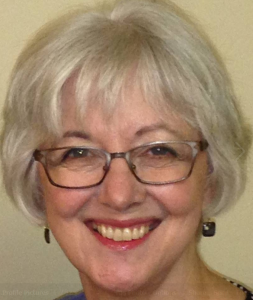Dr. Susan’s goal:
Dr. Susan is on a mission to help animal lovers and pet professionals join forces to help pets live the best possible life.
She is committed to working with you so the pets you care for live healthy lives and come to a peaceful end. And she wants professionals to know, you can have a fulfilling life of practice with people who love what they do. She’ll support you to revive yourself and your work.
Dr. Susan is a pioneer in the fields of pet loss and human-animal interaction. As a result, she is often called on to consult with veterinary practices on client relations and compassion fatigue. She has also consulted with corporations such as Zoetis and Purina on how to help pet lovers provide the best care for animals.
Dr. Susan earned her doctorate in social welfare from Columbia University School of Social Work, where she researched the role of pets in urban families. She has taught social work at Columbia University and Long Island University. She also teaches online graduate courses and seminars for veterinarians and animal protection professionals, lectures, and gives media interviews.
In addition, she is Chairperson of SWAHAB (Social Workers Advancing the Human-Animal Bond), the first such committee of the National Association of Social Workers. In 2011 she received the Louis T. Benezet Award for Career Achievement.
A social worker since 1977, Dr. Susan served as Director of Counseling at The Animal Medical Center (AMC) from 1982-2011 and counseled well over 25,000 people. She has helped pet lovers cope with the illness of their pets, make difficult decisions, such as how far to treat and when to stop, and process their grief when their pets die. In 1983 she developed the first professionally led Pet Loss Support Group and began an animal assisted activity program that took the then-unusual form of having volunteers work with their own pets.
She has also taught thousands of veterinarians, technicians, social workers, and others to figure out what needs to be done for pets and how to support each other to reach good decisions and to have productive lives. She has written many scholarly articles and has given keynote and other lectures at dozens of professional conferences. Hosts of these conferences include American Veterinary Medical Association, New York State Association of Veterinary Technicians, International Association of Pet Cemeteries and Crematories, Veterinary Social Work Summit, Association for Pet Loss and Bereavement, and Green Chimneys Humane Education Conference, American Animal Hospital Association, American College of Veterinary Internal Medicine (ACVIM), Veterinary Cancer Society, International Society of Anthrozoology, Cornell University, Michigan State University, University of California at Davis, Columbia University, and National Association of Social Workers.
Dr. Susan has originated many training programs for workers in the veterinary and social service fields, and she has been a field instructor for several schools of social work. This has led to the establishment of similar programs throughout the country.
Dr. Susan’s work has been featured in The New York Times, The Wall Street Journal, the New Yorker, and Smithsonian Magazine. In addition, she has made numerous television and radio addresses, including “The Today Show,” “20-20,” and “The Oprah Winfrey Show.” Her most recent academic articles are “Compassion Fatigue and the Veterinary Health Team”, “How to Teach Pet Loss to Veterinary Students”, and a book chapter, “Loss of a Therapy Animal”, published in 2015.

Dear Doctor Cohen,
my name is Frank Geerits and am a student psychology at the open university netherlands. In my final paper “pets and well-being, influence of kind of animal and intensity on the relation” , i referred to your article “can pets function as Family members” (2002) in western journal of nursing research.
In that article, you speak at a certain moment about time spent with the animal, including sleep time. However this concept of sleep time is not very clear defined. Can you please inform me about this to clear all possible misunderstandings?
in my research, i used only active time spent with the animal (feeding, playing,…) ,and time ranging from less than 1 hour a week till +6 hours a day. my research further included all possible kinds of pet animals (insects, reptiles, mammals, fish,birds)
For making a good comparison between your results back in 2002 and mine 2014, it’s therefore mandatory that i can clearly state the difference between your definition of time, including sleep time and mine, only active time.
i thank you for reading this mail and look forward to your reply.
best regards
Frank Geerits
Hi, Frank,
Your study sounds fascinating. The field needs social science and other kinds of research if we’re ever going to get past “Look at that adorable puppy. Everyone should have a dog.” We may agree, but our enthusiasm isn’t enough to prove animal assisted therapy works.
The question about how many hours a day people spend with their pets is shaped in part by the sample, which is pet lovers visiting a veterinary teaching hospital in New York City. Very few study participants have a house with a back yard. Most live in apartments, often small apartments, where their cat or dog is always in sight. In addition many of those individuals say they enjoy sleeping with their pet–in the same room and probably on the same bed.
For that reason, when I asked people how much time they spent with their pet, I included the time they spent sleeping, if they shared the room. People who were in the top 1/4 of hours spent together scored higher on the pet attachment scale.
Please keep in touch and let us know how your research turns out. Working in human-animal interaction can be lonely. We need each other’s support.
Dr. Susan